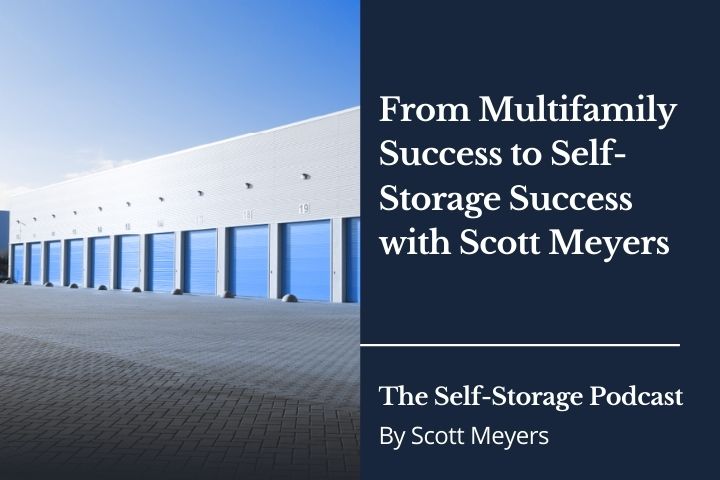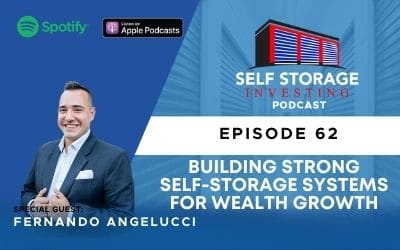Ben Kall, a former college football player and coach turned real estate agent and investor shares his journey from coaching to real estate, explaining how he started a property management company and brokerage business before moving into self-storage investment.
He discusses the importance of diversifying in multiple asset classes and the challenges of managing other people’s money.
Kall also talks about the importance of systems and processes in managing a growing portfolio and recommends the book “Who Not How” for those looking to improve their operations.
WHAT TO LISTEN FOR
1:35 Calling an Audible. Ben’s From Football to Real Estate Investing
3:29 Ben’s First Foray into Self-Storage Investing Without Prior Experience
9:17 Ben’s Involvement in Different Asset Types
21:03 Adapting to Current Market Conditions
Leave a positive rating for this podcast with one click
ABOUT BEN KALL
Ben is the managing member and co-founder of Legacy Investment Group. Legacy is a real estate investment firm focusing on the acquisition, improvement, and best-in-class management of select self-storage, multifamily, and triple net properties throughout the US Midwest.
CONNECT WITH BEN
Website | Instagram
CONNECT WITH US
Website | You Tube | Facebook | X | LinkedIn | Instagram
Follow so you never miss a NEW episode! Leave us an honest rating and review on Apple or Spotify.
Episode Transcript
Ben Kall (00:00):
Is multifamily your favorite? What gets you the most excited? And to be honest, that’s a really hard one for me to answer.
Announcer (00:13):
This is the Self Storage Podcast where we share the knowledge and skills from the industry’s leading investors, developers, and operators to help you launch and grow your Self storage business. Your host, Scott Myers, over the past 18 years has acquired, developed, converted and syndicated nearly 5 million square feet of Self storage nationwide with the help of his incredible team at Selfstorageinvesting.com, who has helped thousands of people achieve greatness in Self storage.
Scott Meyers (00:49):
Hello everyone, and welcome back to the Self Storage Podcast. I am your host, Scott Meyers, and you are in for a special treat Today. We have it in the house, none other than Mr. Ben Kall. Ben, welcome to the show.
Ben Kall (01:01):
Thanks so much for having me, Scott. I’m excited to be here today and share a little bit about my story and try to provide some value to some listeners who are interested in self-storage.
Scott Meyers (01:09):
Well, we know that that is not going to be a problem following your track record and your background. Speaking of which I’ve been following, I’ve been watching what you’re doing out there, doing some cool stuff, scaling up, and we just shared before we get on, you just shared that you’re getting ready to purchase a portfolio and making some big life changes here as well. So why did you get Storage Nation caught up on everything that Ben Call is doing right now in this professional life and how this’s leading to some pretty cool things in your personal life?
Ben Kall (01:35):
Yeah, no, absolutely. So a little bit about my story. I used to be a college football coach at Kansas State University. That lifestyle for everyone who’s not embedded in college sports, it’s a pretty grueling career. You’re consistently working close to 80 to a hundred hours a week, 24 7 the entire year. And so after getting married, my wife and I essentially realized that that was not the life that we had envisioned. It was a dream that I was living out as a former college athlete being around sports. My wife was an athlete as well, but as you get married, things change. So we needed to take a life pivot and we ended up moving back to my hometown of Rochester, Minnesota, and I became a real estate agent. And then originally it was going to be a holdover job until I found something in sports again.
(02:26):
But kind of being a competitive athlete, that nature came out in me and I hit the ground running as a real estate agent saying yes to every opportunity that I had. And so fast forward a year after becoming licensed, I was selling houses, I was listing houses, I was doing commercial leasing, commercial sales. I had started a property management company. And so now fast forward two years, I have a property management company and a brokerage business that is going fairly well. I started working with investors to sell single family. So now I’m selling people houses, I’m managing their rentals. And over time I started to build a little track record. So that portion of my company was growing. And in 2018, one of the owners of the largest portfolio that I had managed in my property management division of my company called me and said, Ben, you’ve made me a lot of the money over the last couple of years, and I just got presented a bigger opportunity than I can do on my own.
(03:29):
And you are an operator that does a fantastic job. It’s a self storage deal that I know absolutely nothing about, and I’m aware you don’t do storage, but I have confidence in you. Would you partner with it, partner on it with me? If it’s something you’re interested, we should do it. The numbers look great. And not investing in anything yet, or even thinking that I was going to become an investor. I basically looked at my wife and said, Hey, we’ve been starting to listen to podcasts a little bit. I’ve been reading some books. It seems like the whole Rich Dad, poor dad, Robert Kiyosaki is hey, that might be a good idea for the rest of our life to not have all our eggs in a basket and be a commission-based agent. So I just said, yeah, completely blind. And about 30 to 40 days after going under contract on this storage deal that neither myself or my partner or anything about, we closed and we were completely blind in it.
(04:27):
I brought the hustle, I brought some money to the table. And the hard part in the industry back when I got started in 2018 is there weren’t podcasts like this. There weren’t many books written about self-storage. So the only thing I was able to do was drive around with some of the other facilities in my market and ask for advice. And back then the old school approach is not to give advice to hide all of your information and not share trade secrets. And so what I did is I leaned onto some buddies who owned and operated hotels and I decided I should operate a storage facility just like a hotel. So a lot of that was bringing my rentals online and I had this whole concept of bringing a concierge service to self storage. So now knowing and listening to everything else in the industry and having about 400,000 square feet or close to 3000 units, this is nothing new.
(05:26):
It’s not rocket science, it’s something that’s been going on. But at the time, I was doing anything to provide customer superior service to customers. And that was my first inkling of it. And eventually after a couple quarters, we started paying distributions and I was getting cashflow for myself as a real life investor. And so after doing my very first investment ever and being a larger commercial property in a self storage niche, I was hooked. And so that was 2018. Fast forward today, which is 2023, the bulk of my portfolio is self storage, but the other 50% is split between multifamily and triple net real estate across the Midwest. I still have a third party management division. I still have a brokerage team at Max Results. And the newer company that I founded in the last couple of years is called Legacy Investment Group. And essentially this started just because of word of mouth and people in my local market watching me and continuing to ask to invest with me.
(06:33):
So the Legacy Investment Group is essentially a private equity or syndication company where we bring in silent partners to help raise capital to go buy some bigger deals. And so as you alluded to in the intro, the biggest deal to date was an $18 million storage portfolio in Northern Minnesota. And we’ve closed on that and we’ve been implementing our transition onto all of our systems, our locks, our gates, our software for the last two months. And transitioning something of that size is definitely a whirlwind, even though that I thought we had all of our team and systems in place, there’s always something new to learn or implement in every situation that you get yourself into as an investor.
Scott Meyers (07:16):
We come from similar backgrounds in terms of coming into self storage a little bit afterwards, after being involved in a multifamily and single-family, their asset classes. And I came into it the same way that you did, which is there wasn’t a whole lot out there. There wasn’t many people teaching it and didn’t know a whole lot about it. So I was asking the people that were in it. And fortunately this industry, we find that people are willing to share, they’re willing to share a lot of information about the industry themselves without divulging their competitive advantage. And now that was a difference between single family and multifamily. But aside from that, that’s why we started our education company and that’s why we started our podcast because we recognized there was a hole in the marketplace where there wasn’t a lot of information out there. And trade shows are great and the associations are good, but that’s really, there’s only so much you can learn about the building side of it and the operation side of it still, but the nuts and bolts of investing, that’s a whole different ball of wax.
(08:15):
It’s a whole different skillset that is involved on that end as well. So I’m glad that you went in and the numbers did look great and you discerned enough, you and your partner that it was great because many times when people do that without getting educated, sometimes it doesn’t turn out very well. But a couple of things that I wanted to tack onto. So legacy is how I came to find you, but then knowing that you’re involved in other asset classes and some of those are my way of what you were managing in the past, but you’re still into triple net commercial, you’re looking at multifamily and also in self storage. And so here we are, we’re heading into what would some would say either we’re in it or heading into another economic cycle. So you’ve got three asset classes that you’re investing in and managing for. How are you approaching the market with those three? Are you shifting away from one or two versus another one or doubling down in two versus three? Tell me of the three asset classes that you’re in right now, how are you positioning for the future And for 2024,
Ben Kall (09:17):
That’s something that I get asked a lot about. If I’m talking to an investor about a particular deal that we’re working on, they say, oh, is storage your favorite? Is multifamily your favorite? What gets you the most excited? And to be honest, that’s a really hard one for me to answer. I was a property manager first. I was negotiating with Chipotle corporate before I ever owned anything in self-storage or multifamily. So I’ve had a lot of experience as an operator and property manager in all three asset types. So to be completely honest, I feel very comfortable in each of them As an investor, putting my investor hat on, I’ve been in self storage and multifamily the longest. Triple net was something that I saw about two years ago where there was an opportunity in the space during covid. There was a lot of scare amongst a lot of investors in retail, and I’d been managing it for quite a while.
(10:12):
So I knew a lot of the specific things to look at from a location, a traffic count, a speed limit, a lot of those checklist items corporate tenants are looking at. And I saw a major drought in construction of retail. And so I knew that there were certain service-based businesses where a human actually has to go to get physical therapy, their nails done, haircuts, chiropractic space, even some plumbing companies that have supplies, right? So I saw a massive supply problem and very good located retail, and I saw a lot of investors backing out. I saw a lot of sellers leaving this space. And so I saw opportunity to try to go pick up some retail centers at an eight cap valuation at the time where self storage and multifamily was trading at a six cap. So from a pure return perspective, simple math says your returns are going to be significantly better.
(11:14):
Now today I have learned that you need to be extremely cautious and the roller coaster of high valuations in cash flows to cratering overnight With tenants leaving in triple net, it’s a lot different than self storage. And in the triple net space, you can have one tenant leave opposed to in self storage, you can have a hundred tenants leave to get the same magnitude of valuation shifts. So you just need to pay attention to things much differently. But if you have a well positioned and located retail center, you can do very, very well today. And I still believe that,
Scott Meyers (11:53):
And I would agree, and that is one of the reasons why we got into self-storage versus it was a natural progression, a natural shift for us to go from multifamily because yes, you do have multiple units and you spread your risk and your cashflow, and you don’t have the wild swings when you have multiple versus a triple net. If you have one tenant and you lose one tenant, you have a hundred percent of your income goes away. And if you lose one tenant in your storage facility, you’ve got one 400th or one 250th. No matter how many units you have, it’s a fraction and it doesn’t kill you at the end of the day. However well positioned, doing your due diligence and homework and flexing your risk muscle a little bit, which you’ve been in the business, you’ve been in the industry for a little while, you understand more of what it looks like.
(12:38):
Those are the times and those are the people like yourselves that take those, look at those opportunities, not as a risk, but as an opportunity to jump in when the market is where it is. And so you mentioned the word scare, so let’s dive into fear a little bit as an investor, and we can talk about this at a couple different levels. I mean it’s wise, you have to have a certain amount of fear, especially when you’re raising capital and investing on other folks’ behalf. You can’t just go and be with a whole lot of bravado and invest like you would if it were just your own money and be more of a risk taker in that sense. You have to be mindful of the market. There is a healthy fear that’s involved in that, but also when everybody else is getting scared of the rushing out is when investors should be ratcheting in the smart investors who are doing it properly and doing their due diligence and market analysis. At least that’s what Warren Buffett and just about every other very successful investor will tell you. That is the time. These are the times in which you create wealth as an investor.
Ben Kall (13:41):
So
Scott Meyers (13:42):
I find that athletes at a high level military personnel folks tend to not get scared, not get anxious, or they don’t let that fear many times unfounded, stop them from investing. So we could break it down, but just what are your initial thoughts on a healthy fear or fear in the economy or in the market and how you invest?
Ben Kall (14:06):
It’s a major discussion point right now amongst our team and the investors that we’ve been working with for a few years. And to kind of go back to your question about asset classes, one of the reasons I really like being diversified in multiple asset classes is because what I touched on at the beginning, a lot of my original mentors just in real estate were hotel owners and managers. They have been absolutely rushed over the last three or four years. They’re still digging their way out of that hole. And so for me, my perspective, and one of the things I talk about with the investors that work with us and in my personal profile is like, look, we really love having the stability of self storage and multifamily, but we’re a unique value add or little chip over here in the retail space. So it helps spread out some of that risk or fear of investing heavily just in one asset class.
(15:04):
So that’s part of the discussion that we have with our investors. But the other part is the way that we’ve built our company on working with investors particularly is because of the track record that I built as a property manager and doing things on my own for multiple years before I got started. And so to be honest, the largest fear I’ve had as an investor is managing other people’s money because everyone’s at a different place in their life. Some people are looking to invest in a real estate to help pay for their kids’ college, others are investing in a real estate to leave their corporate job or their W two others are looking to invest to fund their retirement. And so I have to put this hat on to manage their money and if I screw it up, I could ruin years of people’s lives.
(15:56):
And so that’s the biggest fear mindset that I’ve had to overcome over the last few years. And one of the most impactful things that I did is I joined a couple different masterminds and I hired a performance or a mindset coach a few years ago, and limiting beliefs that I had or fears that I had in my business or my personal life, it’s been immensely helpful for me to grow personally and also in my business. And it’s also been very helpful because when I’m talking about the current economy today, interest rates have come down a little bit, but at the end of the day, if I go bring out a deal right now and go get term sheets with bank, interest rates are going to be at about 8% for the most part. You might be able to find some better terms, but it’s really hard to make deals work when your interest rate’s 8% and the cap rate’s trading at an in-place six cap, the inversion just does not make sense from a simple math perspective.
(16:53):
So to figure out how to underwrite it properly because not many banks are lending on a proforma basis right now, it’s difficult and to explain to an investor that, oh, the bank isn’t lending on proforma, it’s not making money right now, but you need to trust our track record and our history in this asset class to turn it around over the next couple years. Then also look at our crystal ball and say, interest rates theoretically should come down and this is the highest they’re going to be. It’s created a lot of really difficult discussions I don’t think many of us have been a part of over the last few years as investors
Scott Meyers (17:30):
Agreed. And that is a discussion that we’re having now as well. And we know we don’t know exactly as you mentioned, where the market’s heading in terms of interest rates. This will be my third recession, and so we can see a little further down the road. We’ve been through this before, and yes, we feel that interest rates are going to come back down here. Nothing changes in our model in terms of the way that we underwrite a deal. It’s just our cost of capital has to be coming in at a higher amount. And so if interest rates are at eight and we’re not being able to buy at a 10 or get to a 10 cap on underwriting, we would perform very, very soon. Then it’s probably something that we’re not interested in. And it would be very difficult again to then persuade, not convince or tell our investors that, Hey, trust us, but this is where we’re going to take it.
(18:18):
It has to be a compelling story, it has to be believable, and we have to be able to be able to prove that out. So right now, the biggest challenge that we have in talking with our investors is, well, what are you going to do with your money right now in inflation where it is? If you’re sitting on the sidelines and you’re in cash, you’re losing money right now. You need to get your money in play. And so for the rates at least that we’re offering to our investors far exceeds the inflation rate. And so even if we miss our mark by a point or two, they’re still going to be further ahead than that they were saving in cash or investing in some of these, the other, I guess, alternative investments or other investments period that aren’t even keeping up with inflation. But that’s always the challenge As syndicators, we are, I think all of us Storage Nation, depending upon where you’re at in your investment lifecycle and storage, you begin investing with your own money until you run out and then you manage on your own until you can’t.
(19:12):
And then we go third party, and then you recognize that you also can’t do that any longer because you’re responsible for your investor’s returns, and now you need to bring it back in house. You’ve done from the beginning, Ben, to be able to handle and be able to manage that expense. And now you graduate to the place where you’re not just an investment company anymore, now you’re a financial services company and you deploy capital on behalf of others, and that is for their retirement accounts, that is for the college, or that is to bring a spouse or somebody in the household home. And that takes on a whole different life on its own, as you mentioned. And so tell us what this looks like heading into then into 2024 now, the asset classes that you have, understanding where you’re at in terms of the investment company. What’s the next in terms of scale or are you looking to stay the same size as you are right now, pull back, what’s in the horizon for you, Ben?
Ben Kall (20:05):
Yeah, the thing that I would add there is having discussions with investors that I’ve worked with originally, it starts as friends and family, and then you do a deal, you start paying distributions as promised and you start to get referrals. And so that’s grown over the last couple of years. But right now, based off what we’re seeing, we have various goals and targets we’re trying to hit each year from an acquisition, from a return perspective, from a distributions, but right now we’ve closed one deal in the calendar year of 2023, our goal was to close 25 million worth of real estate. We closed 18 and being at the beginning of November. Right now, we don’t anticipate we’re close anything else this year, but that was not for a lack of trying from an acquisition standpoint to do the one deal we did this year. We’ve submitted over 53 lois and one under contract on six and only one got to the closing table.
(21:03):
So it’s just a difficult economy. And I think one of the biggest things that we’ve had to really pay attention to is discipline. Discipline in what we’re going after and discipline not to make a spreadsheet look good and understanding and using our experience in the multiple assets that we’re in to ensure that we’re going to be able to produce the returns that we would expect personally and selfishly if we’re doing it by ourself, but also for the investors that are coming with us. So as we go into 2024, we would love to hit the same metrics that I just explained, but at the same time, I think there’s probably going to be some other opportunity if we are patient and if we can position ourselves to have some cash or access to cash through investors that have told us they’re going to be waiting and some of the lending relationships that we have, we think there’s going to be some unique opportunity and we’re already having some brokers call us about some things that they’re working on bringing out in the pipeline of Q one.
(22:07):
So I am optimistically excited about 2024 and strategically in each of the asset classes that we’ve talked about. But one of the things that I’ve realized as my storage portfolio specifically has grown is, and one of the reasons why I like it so much is because there’s such a multitude of small levers you can play with during operations to create massive valuation swings, but also cashflow. And even if you, I’m kind of talking on experience right now, but the deal we just closed is we thought we were overly prepared for this transition in the last two months. If I had to rate the transition, I would say it was nowhere near to the level that we would expect to transition to happen. Partially that is because of some third party vendors and software companies. Part of it is because a couple things we did not pay attention to in a specific market. But overall, the thing that I’ve learned in being in the industry for quite a while is if we lose ground over a couple months or a couple quarters, there are little levers you can pull to make up ground very, very quickly. And that’s one of the reasons why I love storage so much.
Scott Meyers (23:23):
I would agree. And we’ve bought a handful of portfolios, it’s not really a big part of what we do. Certainly if we can take it down and it makes sense, we would do so. But most of ’em are individual properties like yourself, Ben, and we’re approaching now over four and a half million square feet over the several years that I’ve been investing in self storage and from individual properties to portfolios. No matter how much due diligence you do, no matter how long you’ve been doing this, there’s some transitions that go exactly as you had anticipated and planned. There’s some that fall short of the mark just because of some things that I can’t even say in your instance that we didn’t pay attention to the market, we just didn’t even see ’em. They weren’t even on our radar. And we know we’ve been at this for a little while, and then there’s others that go even better than we had anticipated because there’s some things we found in the market or in the facility, some more horsepower that was left that we didn’t even know about.
(24:16):
So I don’t think that’ll ever change, and I don’t think that we’re always going to have a 100% dialed in. But again, the beauty of self-storage, as you just mentioned, there’s so many different ancillary profit centers that we can add. There’s so many other ways to look at rate and revenue management and adding additional square footage because they’re small units. You buy a Dollar General, you’re not going to put another Dollar General on the same piece of ground after you buy it. But in self storage, hey, there’s some place over here where the turn is a little too large and there’s another half acre that we can put some additional units on, and you can squeeze more revenue out of these properties than anticipated in the beginning. And so again, another one of the many beauties of self-storage is that it’s just, it’s very flexible and there’s so much that we can do with it. So Ben, you’d also mentioned the power of masterminds and mindset coaching, and that’s at the self storage mastermind that we’ve been running for a number of years now. We combine that same thing. I’ve had a coach, I don’t think anybody who shies away from a coach or looks at you and I, no matter how long you’ve been in the business, I’ve been in the business and thinks, wow, why should I follow or listen to get a coach when I’ve been investing this long? What would you say to that?
Ben Kall (25:24):
I would say it’s complete bullshit. That’s very blunt, but that’s kind of who I am. I’m an athlete. I got to play division one football. I always had coaches and I loved coaching because I loved being around people who motivated me and pushed me to become a better athlete. And so this was again before I started reading and listening to podcasts. But at the end of the day, joining a mastermind or getting a coach, and you hear it a lot now on podcasts, but surrounding yourself with the people that you want to be or become. And so ultimately, I love putting myself in rooms where I’m the smallest fish in the pond. So a couple of weeks ago I was in Atlanta at a mastermind and we’re sitting at a table sharing some of our goals, both personally and financially. And from a financial standpoint, I was kind of in the room and over the last couple years, my net worth has grown pretty substantially.
(26:19):
But then you sit down at a table and you get into this little turtle shell and you’re like, oh man, this is the perfect room for me. Whereas a few years ago, I would’ve been horribly intimidated and really shy and quiet, but I saw this as an opportunity to really learn and pay attention to the people that I’m surrounding myself with now. So the point of masterminds and coaching is to be around the people that you want to become. That’s just in your personal life. If it’s travel, if it’s business, if it’s things that you want to accomplish in the next five to 10 years, you just need to surround yourself with those people because they rub off on you.
Scott Meyers (26:55):
As Jim Rowan said, just to say it another way, you are the sum total of the five people that you spend the most amount of time with, and those are the people that should be at the very same level with high aspirations or they should be above you. And that is what I find, and I have no problem being not the smartest person in the room because there’s no growth that happens as a result of that. Certainly you can contribute, and we’re all meant to contribute as we get on in years and share our experiences as well. And I hope to be one of those five people to other folks as well to be able to help them along. But if those of us that are very successful and entrepreneurial minded, we tend to also look to ourselves and say that we are a self-made man or a self-made woman.
(27:36):
And I would also say to that there’s no such thing, and you need to surround yourself with good people because they’ll uncover your blind spots. And if you’re not looking for accountability and it’s not a part of a mastermind or a group that you’re involved in, then I would say that there may not be growth unless you’re just completely the unicorn out there. You need that accountability and you need to surround yourself. That’s why I build my mastermind is because I wanted to get a group of folks in self storage that were like-minded individuals that are striving for something greater. We can share best business practices. And again, in an industry in which many people do so and then also have the opportunity to do business together, you can’t find that anywhere else. But if you build it and you put those people in the room, or if you’re a part of that, then all of a sudden that collective intelligence, there’s just something magical that happens as a result of that.
Ben Kall (28:21):
And I would just add to that and say that a lot of people look at real estate investors or real estate investors, excuse me. A lot of people look at real estate investors or developers in a sense that all of them are wealthy, all of them are greedy, and all of them are money hungry. I would say all the investors and developers that I know are doing it for a lifestyle, they’re looking to do it for financial freedom, to be able to travel, to spend more time with their kids, to live on their own schedule, to not be on the clock at their corporate job, moving their mouse to not get fired. So it’s a totally different perspective, and as I’ve grown in this and as my friends have become business partners have become investors with me, they’re doing it because they want the lifestyle that my wife and I have been able to build over the last few years. We got to travel last year for five years outside of the country. Not many people have the ability to do that, and a lot of hard work went into being able to accomplish that. But again, it’s surrounding yourself with the people you want to be and putting yourself in opportunities through networking to put yourself into those opportunities.
Scott Meyers (29:32):
Yep, a hundred percent. The groups that I’m in, and there are some wealthy individuals as well, these folks, they have achieved a level of success. But as you mentioned, Ben, it wasn’t to compare notes, it wasn’t to keep score, it wasn’t to prove anything to anyone. It wasn’t to buy a Lamborghini at an island to crush it and show off to the girlfriend in high school that dumped them. It was because they wanted freedom. They wanted freedom to do what they want to do whenever they want to do it and not have to answer to anybody else and not have to say no or go without. And that’s really what it’s about. And you’re right, it’s a heavy lift to get to that place, but it’s worth it once you get there. So Ben, you shared that you lean into coaching, you lean into education, you want to surround yourself. You are a guy that is no stranger to growth and being accountable. So tell me what you’re reading right now. What is maybe your top read or your top three reads right now that you would recommend to Storage Nation?
Ben Kall (30:29):
Yeah, so over the last few years, we’ve grown pretty rapidly. And my big focus in 2023 was systems really, really dialing in everything from our actual management and storage softwares to all of the project management for each of our properties to just communication amongst our team. So we spent a lot of time really figuring out what systems we needed to implement so that as we continue to grow at the pace that we are, no balls are getting dropped and we’re able to operate and manage our properties just like I did when it was my very first one. And a lot of call it, my pitch to investors is that we are typically able to produce the returns that we do because of our operational efficiencies. And recently, a lot of the deals that we’ve acquired, we disclosed an $18 million deal that had six offers on it.
(31:28):
Why were we able to separate ourselves and win? Were we the suckers that paid too much or were we able to underwrite it because we saw the little levers that we could pull in portfolio and confidently close it and implement those. So a lot of that was done because of the systems that we’ve been able to build this year. So a lot of what I’m reading right now, the specific book that I’m reading right now is Who Not How, and it’s been a very impactful book. And part of the reason that I touched on before we started recording is we’re going to Colorado for a month, just my wife and I to kind of get away. And part of that is I’m going to be challenging myself. And this is something my coach told me yesterday on one of our coaching calls is he said, Ben, no matter what is happening at any of your properties or back home, if your house is on fire, do not go home.
(32:23):
And that was one of those gulp moments that said, well get the hell out of here. I’m flying home, my house is on fire. And it was a challenge to me to really implement the systems that I’m putting in place and are relying on my team to continue to move things forward. And so that’s where a lot of attention has been. And I would say fortunately, looking back on it, this was a slower year from an acquisition standpoint, and it probably couldn’t have came at a better time selfishly because we’ve been growing at such a rapid pace.
Scott Meyers (32:53):
Anything by Dan Sullivan, I was a member of a strategic coach for a number of years, is just gold and who not. How is another one that you absolutely need to add to your list if you haven’t read it already? Storage Nation. And also going back a few years, Michael Gerber in the E-Myth, he talked about setting up a franchise for your business. And self storage is one of those industries and those businesses that is pretty, it’s a simple predictable business model that you can really kind of pare down and parse down into different processes. And so we’ve been able to do that in our business as well. And we’re not 100% there, but there’s not a whole lot that slips through the cracks. And now once we hit the go button on an acquisition and then a transition, there’s a detailed checklist and we have individuals that know exactly what to do and how to go about doing it.
(33:40):
And so that absolutely is again, something else that sets you apart when you’re raising capital and bringing on partners to show that you have thought about this and that there’s a process behind it. And we’ve got some tools that we’ve used along the way to help us. But I’m curious, Ben, as you’ve gone through and set up your processes, and you don’t have to open up your entire toolbox, but what has been essential from say, project management tools to communications or even to the site specific self storage specific level, what types of tools have been just integral to making sure that you’re operating in all cylinders?
Ben Kall (34:17):
Yeah, so specifically in storage, the software that we use across our portfolio is storage dependent upon the facility and if it’s gated or has fencing, we also use DaVinci Locks at a lot of our facilities to help with some of the remote management and not having to have an onsite manager to help trim it. Store edge and DaVinci Locks are two things that we’ve been using for quite a while from a project management standpoint. We use a software called Asana. There’s a comparable product called Monday, which is pretty popular, but we really liked some of the integrations and just some of the workflows amongst our team for Asana. And then from a communication standpoint, a lot of what we had been doing originally was just text and email. As busy people who were on the go in their vehicle a lot, you can open up a text message and not respond and it gets lost.
(35:11):
You can open up and read an email and not respond because you’re sitting in a stoplight. So communication was really important. So a lot of our communication amongst the team that we work with, everything from VAs to our accountants, to our bookkeepers, to people who are boots on the ground for us, we use a Slack channel, we can itemize everything by property and location. That was a huge part in ensuring that things are getting done in a timely fashion. One of the fun processes that we did early this year is my wife is a project manager and she was sitting in some of our meetings with me and my business partner Jonah, of how do we want to add all these different things and what are the things that they do? She works at the Mayo Clinic, which is the number one largest hospital in the world.
(35:59):
And so it was fun having her sit in and get to see what she does on a daily basis and kind of help implement it into what we do. And so we sat in a very large conference room with multiple different colors of sticky notes and just the process that we went through was, okay, from the time an LOI gets accepted until you close, and then the first month after transition, what is literally everything. And we color coded it, color coded everything from LOI to purchase agreement, from purchase agreement to the end of due diligence, from the end of due diligence to the close date, and then the first month of transition. So everything was color coded, and then we put ’em in a tiered order of how they need to get done. And so that was eyeopening everything from the very, very obvious to the most minute thing of just setting up insurance on autopay, every little thing that could possibly get added.
(36:55):
And this took multiple sessions because there’s so many things that you just do that you might not out. And so that was a really, really fun exercise. But then the ability to build that into Asana when we go under contract on a property and then we’re able to add workflows. A lot of what I do is on the operational side and the working with the tenants. My business partner Jonah, is a lot of the legal and working on the lending side. A lot of the things that get done, how do we do them where I need to have sign off in my area of expertise, and then as soon as I check that off, it flows over to him so he can finish up and wrap ’em off. So there’s a lot of that that we’ve been able to implement that I would say it feels like we’re now running as a corporate business opposed to just like a solo entrepreneur is a lot of the book talking about right now.
Scott Meyers (37:53):
We love Asan around here as well, that there’s the property side and then there’s the team side, and we’ve used Microsoft Teams and that is how we’ve communicated Slack. We tried to implement and didn’t work quite well for us either way. We also tried to have one platform for both, and it just doesn’t work. I think Asana is just a killer app for the project management side and then the communication side. Now we want to have something that everybody’s going to adopt, and I think that’s important no matter what you choose. So Very good, Ben. So Ben, what would you say is probably the best piece of advice that somebody has ever given you?
Ben Kall (38:30):
Just do it. I was an athlete and I was always a big fan of the Nike clothing, cleats, sports gear, and that’s just something that’s jumped out at me getting into being an entrepreneur to investing is I see so many people, it goes into part of the conversation we had earlier in the episode of a lot of people are sitting on the sidelines. A lot of people have been sitting on the sidelines since the beginning of this run back in 2015, 16, they’ve just been stockpiling cash waiting for a crash. And it’s sitting here. And I started investing in 2018, and I look at what I’ve been able to do because of the discipline I’ve taken and just do it attitude. So I would say listen to podcasts like this, read books on what you have interest in, and you’re not going to know what your niche or your one thing is going to be the very first time you do it.
(39:25):
And the first one might be a little bumpy, but if you learn something from it and you gain confidence to do it over and over and over and turn it into a business like we just talked about, I think that’s the thing you really got to pay attention to. So the analysis paralysis is something that I think too many people get scared of. And for me, my very first deal was a $1.5 million storage deal. I lived in $170,000 house that we had just bought, and my first investment was in theory, a huge one. And I’m so excited that we just did it and relied on the relationship and partnership that we had, and it gave us an immense amount of confidence to be able to build what we have today.
Scott Meyers (40:09):
And that goes for these times as well. I mean, if you’re digging in and doing the things that you just mentioned, Ben, and that is understanding what you’re investing in, learning it, and then going out and doing it, you’re doing it in a time right now where the cost of capital is high, where there’s a lot of risk. But I would say also probably more opportunity because there are fewer people looking to do it because they’re sitting on the sidelines. So if you’ve got a solid business model right now and you’ve got the buffers built into it, and profitability that you can plot a path to now is 100% the time to invest because there’s no guarantee that your business is going to be bulletproof. But if you build it during this time, it is certainly going to be battle proof when you head into better times. So very good advice, Ben. Well, Ben, it has been an honor to share you and your story with Storage Nation. If people wanted to follow you and find out a little bit more about what you’re doing, where would they go find you?
Ben Kall (41:00):
Yeah, I’m not overly active on social media, but if you want to follow me on LinkedIn, you can find me at Ben call, so Ben, KALL, or you can find us and kind of see what we’re up to from a property standpoint@legacyinvestmentgroup.com.
Scott Meyers (41:17):
Fantastic. Ben, thanks so much for your time today. Appreciate it so much. We’ll catch you on the flip side.
Ben Kall (41:22):
Yeah, thanks for having me, Scott.
Announcer (41:27):
Hey, gang, wait three things before you leave. First, don’t forget to follow The Self Storage Podcast and turn on your notification so you never miss another episode. And while you’re there, please leave us a five star review if you like the show. Second, be sure to share your favorite episodes and more via Instagram, and don’t forget to tag us. And lastly, head to the links in the show description and hit follow on Twitter and Facebook to get a front row seat as we grow and scale our business and bring you along with us.















